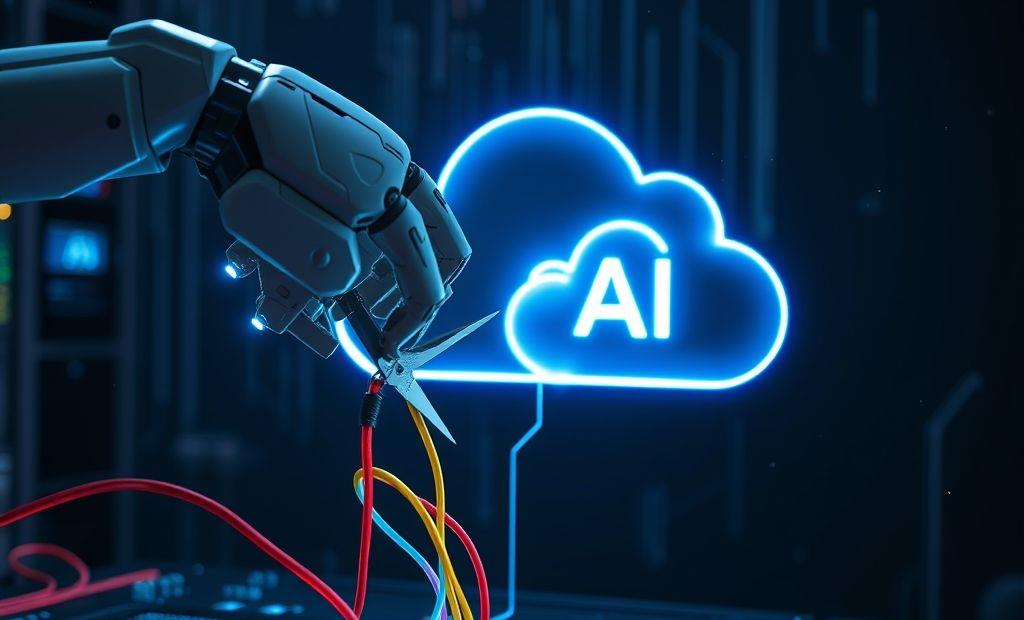Anthropic Restricts OpenAI’s Access to Claude Models

Anthropic Restricts OpenAI’s Access to Claude Models Anthropic, a leading AI safety and research company, has recently taken steps to restrict OpenAI’s access to its...
⏱️ Estimated reading time: 3 min
Latest News
Anthropic Restricts OpenAI’s Access to Claude Models
Anthropic, a leading AI safety and research company, has recently taken steps to restrict OpenAI’s access to its Claude models. This move highlights the increasing competition and strategic maneuvering within the rapidly evolving AI landscape. The decision impacts developers and organizations that rely on both OpenAI and Anthropic’s AI offerings, potentially reshaping how they approach AI integration and development.
Background on Anthropic and Claude
Anthropic, founded by former OpenAI researchers, aims to build reliable, interpretable, and steerable AI systems. Their flagship product, Claude, is designed as a conversational AI assistant, competing directly with OpenAI’s ChatGPT and other similar models. Anthropic emphasizes AI safety and ethical considerations in its development process. You can explore their approach to AI safety on their website.
Reasons for Restricting Access
Several factors may have influenced Anthropic’s decision:
- Competitive Landscape: As both companies compete in the same market, restricting access can provide Anthropic with a competitive edge. By limiting OpenAI’s ability to experiment with or integrate Claude models, Anthropic can better control its technology’s distribution and application.
- Strategic Alignment: Anthropic might want to ensure that Claude is used in ways that align with its safety and ethical guidelines. By limiting access, they can maintain greater control over how the technology is deployed and utilized.
- Resource Management: Training and maintaining large AI models requires significant resources. Anthropic may be optimizing resource allocation by focusing on specific partnerships and use cases, rather than providing broad access.
Impact on Developers and Organizations
The restricted access will likely affect developers and organizations that were previously using Claude models through OpenAI’s platform. These users may now need to establish direct partnerships with Anthropic or explore alternative AI solutions. This shift can lead to:
- Increased Costs: Establishing new partnerships or migrating to different AI platforms can incur additional costs.
- Integration Challenges: Integrating new AI models into existing systems can require significant development effort.
- Diversification of AI Solutions: Organizations might need to diversify their AI strategies, relying on multiple providers to mitigate risks associated with vendor lock-in.
Potential Future Scenarios
Looking ahead, the AI landscape will likely continue to evolve, with more companies developing specialized AI models. This trend could lead to greater fragmentation, but also more opportunities for innovation. Anthropic’s decision could prompt other AI developers to re-evaluate their access policies and partnerships. The emphasis on AI safety will be a key element in defining future access and usage agreements.
Related Posts
Bluesky Enhances Moderation for Transparency, Better Tracking
Bluesky Updates Moderation Policies for Enhanced Transparency Bluesky, the decentralized social network aiming to compete...
December 11, 2025

Google Maps: Gemini Tips, EV Charger Predictions & More!
Google Maps Gets Smarter: Gemini Tips & EV Updates Google Maps is enhancing user experience...
December 9, 2025

Adobe Acquires Semrush in $1.9B SEO Power Play
Adobe to Acquire Semrush for $1.9 Billion Adobe announced its agreement to acquire the search...
December 1, 2025











Leave a Reply